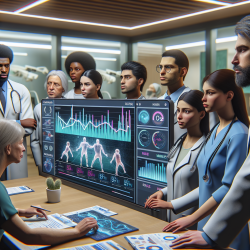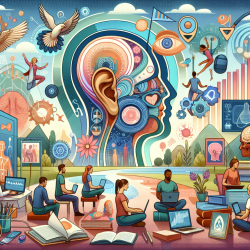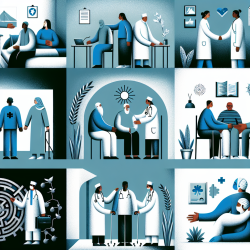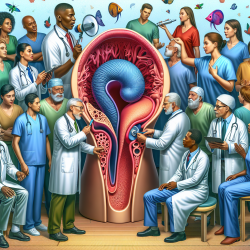Introduction
In the world of speech-language pathology, data-driven decision-making is paramount to achieving optimal outcomes for children. By leveraging insights from diverse fields, we can enhance our understanding and refine our approaches. One such field is particle physics, where the search for heavy resonances decaying to two Higgs bosons offers a wealth of data and methodological rigor that can inspire and inform our practices.
Understanding the Research
The research titled "Search for heavy resonances decaying to two Higgs bosons in final states containing four b quarks" conducted by the CMS experiment at the LHC provides a meticulous approach to data collection and analysis. The study explores proton-proton collisions, searching for signals of heavy resonances that could indicate new physics beyond the Standard Model. Although no evidence of such resonances was found, the methodology and data analysis techniques employed are exemplary.
Key Takeaways for Practitioners
While the research is grounded in particle physics, several key takeaways can be applied to speech-language pathology:
- Rigorous Data Collection: The research emphasizes the importance of precise data collection and analysis. In speech-language pathology, ensuring accurate assessment and documentation of a child's progress is crucial.
- Advanced Analytical Techniques: The use of sophisticated statistical methods to interpret complex data sets can inspire practitioners to adopt more advanced analytical techniques in their practice.
- Collaboration and Interdisciplinary Learning: The study was a collaborative effort involving multiple institutions. This highlights the value of interdisciplinary collaboration, encouraging speech-language pathologists to engage with professionals from other fields to enhance their practice.
Encouraging Further Research
The research also underscores the importance of continuous exploration and inquiry. For speech-language pathologists, this means staying abreast of the latest research, integrating new findings into practice, and contributing to the body of knowledge through their research endeavors.
Conclusion
By embracing the data-driven approach exemplified in the Higgs boson research, speech-language pathologists can enhance their practice, leading to improved outcomes for children. This research serves as a reminder of the power of data and the importance of ongoing learning and adaptation in our field.
To read the original research paper, please follow this link: Search for heavy resonances decaying to two Higgs bosons in final states containing four b quarks.










